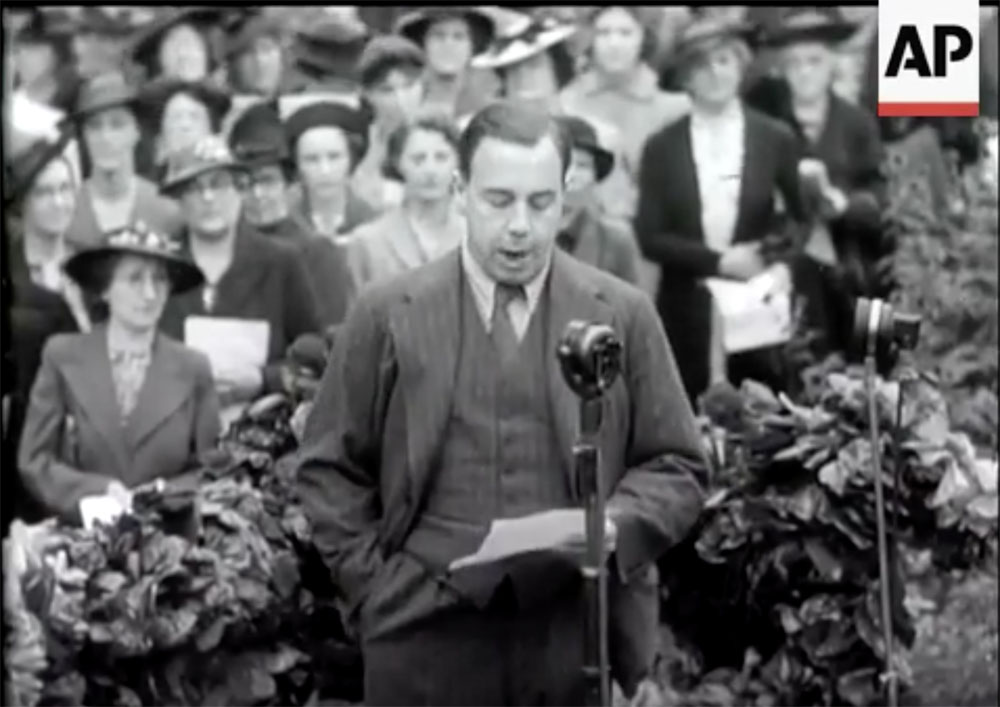
“An Inspector Calls,” BBC, 2015
J.B. Priestley had never particularly been on my literary radar screen. He should have been. I will work on that.
Last night, with quite a few gigabytes of satellite data to use up before my account does its monthly reset, I was determined to find something good to stream, which seems increasingly hard to do. On Amazon Prime, I came across “An Inspector Calls,” a 2015 BBC production of Priestley’s most famous play, with which I was unfamiliar.
It was one of the best films I’ve seen in years. The cast is superb. Who says that stagey productions are slow? I couldn’t avert my eyes or take a bathroom break. I was late putting the chickens to bed.
The play was written in 1945. It is set in 1912. I generally love films that are based on plays. I’m sure that this is because such films, of necessity, emphasize the work of the writer. There will be no special effects and no loud soundtrack. No effort will be made to hold the interest of those with short attention spans. Much will be demanded of the cast. Some exertion of the mind will be required. We will be reminded of why we love the English language.
For an overview of Priestley’s biography, I started with the Wikipedia article. By the third paragraph, Priestley had earned my permanent respect: “His left-wing beliefs brought him into conflict with the government, and influenced the birth of the Welfare State. The programme was eventually cancelled by the BBC for being too critical of the Government.” The program the article is referring to is Priestley’s radio program on the BBC in the 1940s. Here’s a short sample from Youtube, June 1940, in which Priestley is talking about the evacuation of Dunkirk.
Is “An Inspector Calls” didactic, as some critics complain? You bet it is. The headline on a review in The Spectator reads “An Inspector Calls is poisonous, revisionist propaganda — which is why the luvvies love it.” I must be a luvvie. Any play that after almost 75 years still gets under right-wing skin that badly is not to be missed. And that play’s writer is not to be forgotten.
Writers’ lives matter. As surely as odious propagandists such as Ayn Rand helped to pull us all into the right-wing swamp in which we are now mired, so also left-wing propagandists such as J.B. Priestley helped to prepare the world for the liberal policies and institutions that brought decades of shared prosperity after World War II. But in more recent decades, right-wingers have been winning the propaganda wars, and thus they have succeeded in reversing and rolling back the very policies that enabled the Golden Age that cranky old conservatives still glorify — the 1950s. I am at present reading a new book by Robert Kuttner, Can Democracy Survive Global Capitalism?, which tells the story of how those liberal policies came about in the days of the New Deal, and how they were reversed. I will review that book soon.
As the BBC understood in reviving “An Inspector Calls,” we have regressed, badly. Priestley’s Eva Smith, a poor factory worker who struggled for a better life but was blocked at every turn, is still very much with us. The wealthy Arthur Birling also is entirely recognizable, though I would have to say that Arthur Birling, in fictional 1912, shows a capacity for truth and kindness and transformation that I fail to detect in today’s rich lords of the universe — at least those who have political and media power.
“What a load of manipulative, hysterical tosh,” rants The Spectator. That’s what they always say about anything that disturbs their nasty little Ayn Rand world, and plenty of fine writers have vindictive 1-star reviews to prove it. May Priestley’s heirs write on, and may we somehow manage to find them out there in all the noise and bile and razzle.

J.B. Priestley, “Let the people sing.“

Very good review from my favorite blogger. Always enjoy the posts and have learned so much from you over the years. I consider yours an excellent example of a “life well lived.”